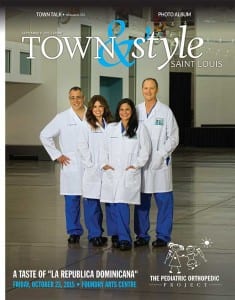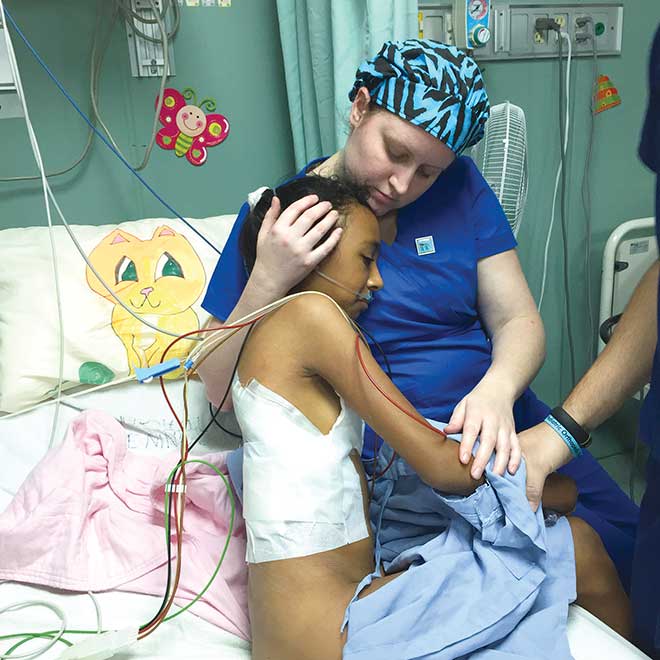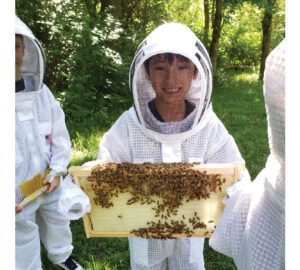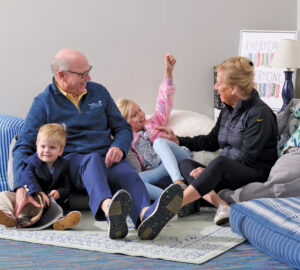Scoliosis is common and correctable. In the United States, the spinal curvature is almost always caught early and treated, but in the Dominican Republic, impoverished children with scoliosis face a life of pain, ridicule and exclusion. The disparity shocked Dr. Madelyn Stazzone three years ago when she first traveled to the island nation on a medical mission. The pediatric radiologist joined her husband, a pediatric orthopedic surgeon, and nine others from the medical field to perform scoliosis surgery on children at the Arturo Grullón Children’s Hospital in Santiago, the country’s second largest city.
The hospital was a bare-bones operation with conditions that were subpar by U.S. standards. “Children sit for weeks on end waiting for simple treatments that would be outpatient here,” Stazzone says. The operating room was dilapidated, with duct-taped floors. Equipment was antiquated or nonfunctional. Wheelchairs, medications and even gauze pads were scarce. Despite the limitations, the children and their families were patient, kind and appreci ative. “That’s what drives us to do more,” Stazzone says.
ative. “That’s what drives us to do more,” Stazzone says.
Inspired by the trip, Stazzone started the Pediatric Orthopedic Project (POP) to make the Dominican missions an annual event. Initially a bootstrapped effort with team members personally securing donations of orthopedic equipment and supplies for their Dominican counterparts, POP earned federal nonprofit designation last year. The organization uses donations to offset the cost of eight to 10 scoliosis surgeries each year, which total $80,000 apiece in the United States. POP is holding its second annual gala Oct. 23 at Foundry Art Centre in St. Charles. “We are ready to propel the mission forward and do much, much more,” Stazzone says. “There are so many needs. The sky’s the limit.”
POP’s reach extends beyond surgery. The group educates the doctors at Arturo Grullón Children’s Hospital so they can continue this kind of work throughout the year. In its four mission trips, POP has operated on 34 children, and local doctors have operated on 60 more. “We want to teach them to fish, not fish for them,” Stazzone says. “The doctors want to learn so they can help their own people. That’s made a huge difference in patient care.”
The numbers don’t fully illustrate POP’s lasting effects, she notes. In the Dominican Republic, people with disabilities are ostracized, so correcting a child’s scoliosis gives them the opportunity for a better life. One former patient has become a nurse, and three others want to become doctors because of their experiences with POP. Outcomes like that are what motivate POP volunteers to give up vacation time to work 12-hour days for seven days in a row. “What I got back was so much more than what I gave,” says Lisa Simani-Oren, a nurse practitioner who has gone on two missions with POP. “We’re helping an underserved population and giving them a chance to change their lives for the better. I feel very fortunate.”
Pictured: ICU Nurse Jenny Selber and 11-year-old scoliosis patient Lisbeth in the Dominican Republic
[The Pediatric Orthopedic Project’s Taste of La Republica Dominicana gala takes place Oct . 23 at Foundry Art Centre in St . Charles. Tickets are $100 per person or $1,000 per table. Pictured on the cover: Dr. Phineas Oren, nurse practitioner Lisa Simani-Oren, Dr. Madelyn Stazzone and Dr. Enrico J. Stazzone. Register online at popfund2015.bpt.me. For more information, call 314.315.6102 or visit popstl.org.]









1 Comment
Comments are closed.